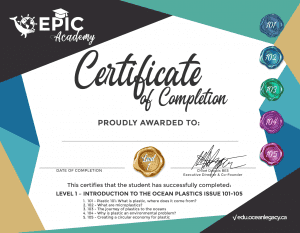Todas las Lecciones
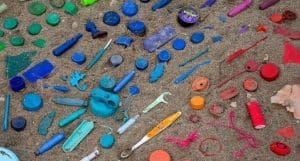
101 – LECCIÓN 1: Introducción a los plásticos oceánicos
Lesson 1 provides an overview of plastic, explains plastic Resin Identification Codes, and explains how to sort and recycle plastic correctly.
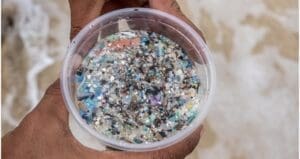
102 – LECCIÓN 2: Microplásticos
What are Microplastics: An introduction to microplastics including sources of microplastics and why microplastics are an issue.
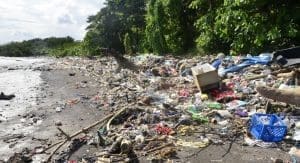
103 – LECCIÓN 3: Viaje del plástico al océano
The Journey of Plastics to the Ocean: An introduction to how plastics become ocean plastics including the common pathways for plastics to reach the ocean.
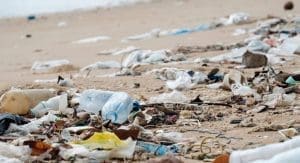
104 – LECCIÓN 4: ¿Por qué hay tanto plástico?
In this lesson, we will take a closer look at why there is so much plastic available to become plastic pollution.
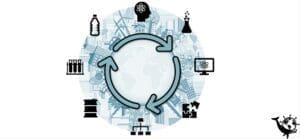
105 – LECCIÓN 5: Impactos de la contaminación por plásticos en los océanos
Plastic is ubiquitous and interacts with all aspects of the biosphere. There is no other single anthropogenic (human-made) contaminant that has had such a wide spectrum of direct exposure across all levels of biology.
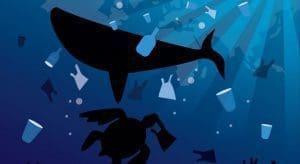
206 – LECCIÓN 6: Economía circular del plástico
Learn about the concept of a circular economy, exploring its two fundamental cycles and three guiding principles. Understand the benefits and the importance of traditional knowledge with a specific focus on transitioning to and the advantages of a circular economy for plastic.
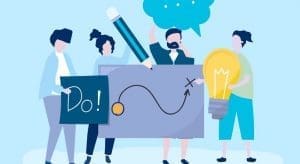
207 – LECCIÓN 7: Pasar a la acción
Encouraging Behavioural Changes: An overview of how to encourage and enable behavioural changes that would work towards preventing and collecting ocean plastics, and encourage people to ‘join the ocean plastics cause’.

208 – LECCIÓN 8: Planificación y puesta en marcha de un sistema de reciclado de plásticos
Recycling System Planning: An overview of how to set up a recycling system for ocean plastics prevention and management: essentially a “Master Recycler’ course aimed at anyone who seeks to collect or process plastics or ocean plastics.
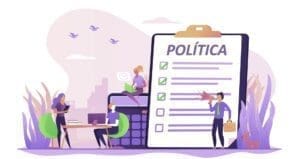
209 – LECCIÓN 9: Utilizar la política para marcar la diferencia
How to Use Policies to Affect Change: An overview of the kinds of policies that exist that could stem the flow of ocean plastics into the environment (e.g., extended producer responsibility, deposit return systems, green procurement, funding tools).


